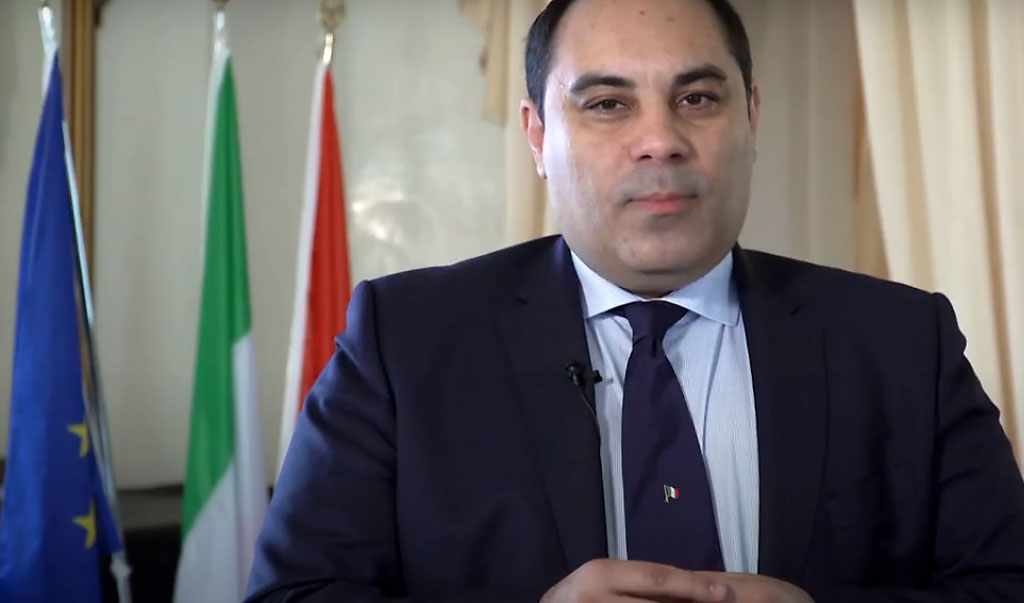Rinaldo Melucci interview
The port as a driver of sustainable development
Mine is a family that has salt water in its veins instead of blood, because it is a family that was already involved in oyster farming a century ago and then went on to produce steel mooring cables for ships.
My father was an operator of the port’s historic Port Company and I, for the last 20 years, have worked in this port, but also other European ports, as a shipbroker and a shipping agent, coordinating the port’s ancillary services in close contact with the Port System Authority.
The learning experience of working in the port
It was a very important experience from the point of view of learning for at least two very significant reasons.
The first is that of always having to deal with so many workers, so many institutions, so many subjects, so many interests, and this pushes you in some way to always seek synthesis, balance with moderation, to invest new energies in creative directions, in short, to do what is now called problem solving during the hours of a ship’s docking, and then also because of dealing with contractual matters, insurance, cargo loads.
It gives you an open-mindedness that perhaps few other professions give you.
I have to say that, after a while, though I don’t often set foot in port, I still miss the air on a ship’s deck, I miss everything that was part of a ship’s arrival, despite the hard work.
All of this I have obviously brought with me as a human experience, as an intellectual and professional experience, and I must say that when we arrived in 2017 to administer the municipality of Taranto, we sought to transfer this entrepreneurial flair, this capacity for problem solving and above all to keep interest groups, associations and the citizens of this city together around the goal of a cultural and socio-economic turnaround for this city.
The “Ecosystem Taranto”
We often think of Taranto as a steel-producing city, in fact Taranto has had heavy industry only in the last 50 years of the past century, for 28 centuries we have been instead a maritime city, a mercantile city, and today we are attempting, together with the Port System Authority, to recover this strong accord of values and objectives with the city.
Therefore this reconnection of the urban fabric with its port can, I believe, be one of the central planks of that model of development which is ultimately sustainable, an alternative to the big polluting industries that we have to some extent incorporated in recent years into the new general urban plan, but above all within this municipal energy, economic and ecological transition plan that we call Ecosystem Taranto and that has been developed in particular as a real partnership regarding marine resources with the Port System Authority of the Ionian Sea.
Taranto, capital of the sea
I am convinced that the port area as a driver of sustainable development will play an important part in the future of this city.
The future is made up of cruise tourism, of productive diversification, of containers returning to colour the quays of the port.
And on closer inspection, it is less a drive towards the future than a return to its origins, because this was for centuries a maritime city, a “capital of the sea”, as we have incorporated into our tourism branding for some time now.
It is a city that also looks to the experiences of the other Mediterranean coastal countries and, as you know, it projects itself in its efforts to change urban planning as well, to reconnect its spaces with the port, to host the twentieth Mediterranean Games in 2026, a test of resilience, as we call it, of this city that changes and returns to its sea, that sea which is probably able to erase the mistakes of the recent past and give the young people of this city a different, ultimately sustainable, future.
In short, I would like that at last, the people of Taranto did not feel that they are only accidentally, by chance in a city by the sea, but feel that they are in a maritime city, in other words they feel that their traditions and customs can also be enjoyed on part of the port’s quaysides.
When we arrive at that moment, this is the dream, we will truly be that Capital of the Sea that we are also presenting to tourists and the market.
*** Automatically generated subtitles ***


